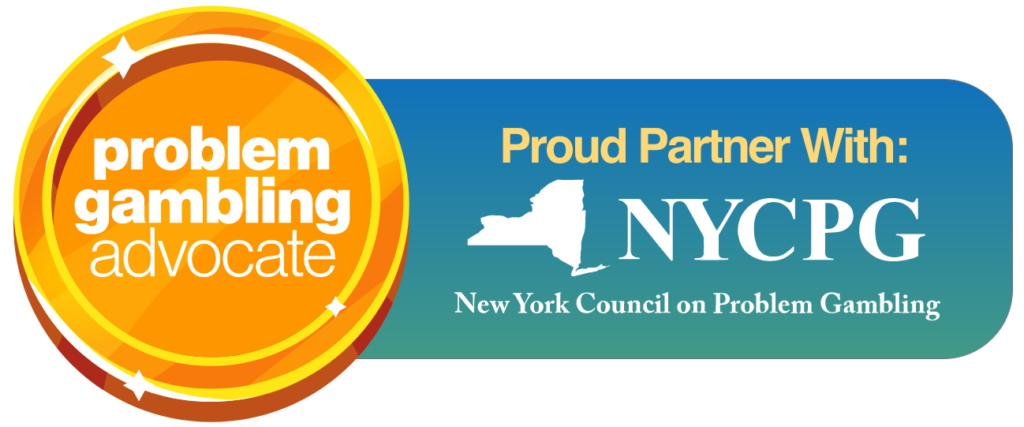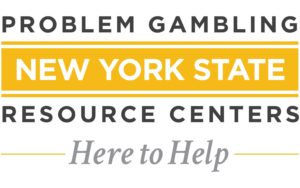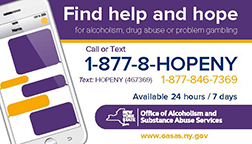Talk with Your Children about Gambling!
Gambling today is more accessible than ever. It is portrayed through television and other media as exciting and easy money. However, gambling can lead to serious problems. Your child needs to know that gambling can easily get out of control and lead to serious losses, not only of money and possessions, but also the loss of trust and respect from family and friends or educational opportunities. Studies show that the earlier a child engages in risky behaviors, the greater the likelihood those behaviors will become problematic.
Youth are exposed to gambling images almost every day. Just by going onto the internet, gambling opportunities pop up. Walking into a grocery store exposes them to lottery ticket sales and by turning on the television they can watch a Texas Hold ‘Em tournament.
The 2006 NYS OASAS school survey estimates that nearly 20 percent of New York’s adolescents in grades 7 through 12, that’s over 300,000 youth, currently have or are at risk for gambling problems.
What are the Warning Signs?
- Low mood or feelings of anxiety. Adolescents have reported gambling to escape worries or frustration
- Lying, cheating and/or stealing
- Preoccupation with gambling
- Unexplained absences from school and/or work
- Intense interest in gambling conversations, uses gambling lingo
- Interrupts time spent with family or friends because of gambling
What can parents do?
Research shows that parents CAN make a difference in how their children respond to risky activities such as gambling.
Research indicates the best ways to guide your children from risky behaviors are:
- Start early – talk with your kids now about gambling and other risky behaviors.
- Listen – let them know that they can come to you and you will listen.
- Educate yourself and your kids.
- Know what behavior is normal.
- Establish family rules and enforce them.
- Monitor your children’s activities, know where they are and with whom.
- Be involved.
- Help your child develop coping skills.
- Be a good role model; demonstrate the behavior that you want your children to learn.
The following information was obtained from the National Center For Responsible Gaming 2008 publication.
For more information visit:

If you think you might have a gambling problem call
the 24-hour NYS HOPEline at (877) 846 – 7369
Save



